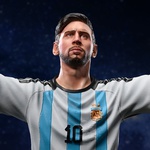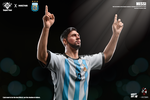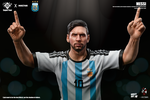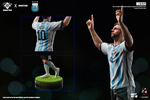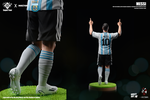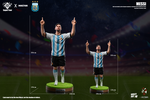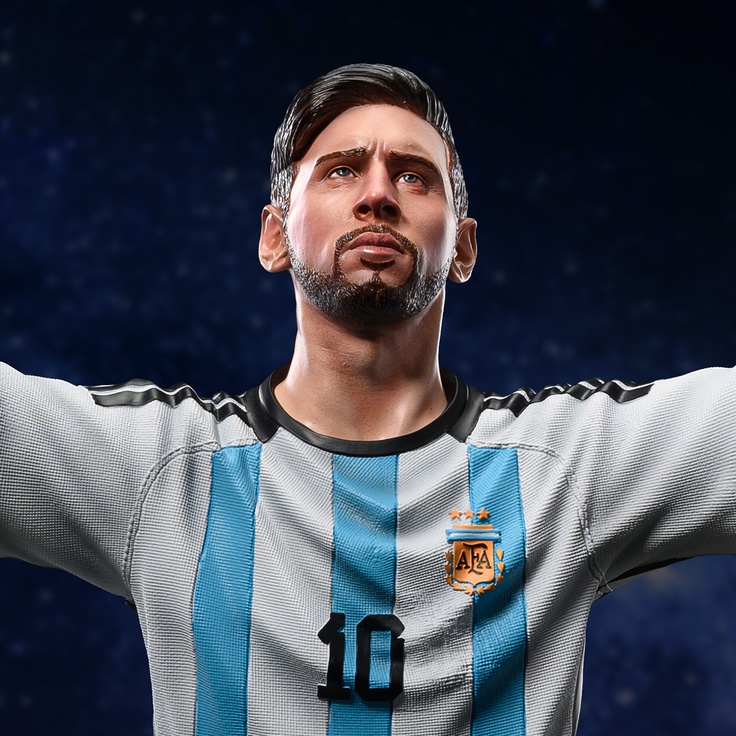
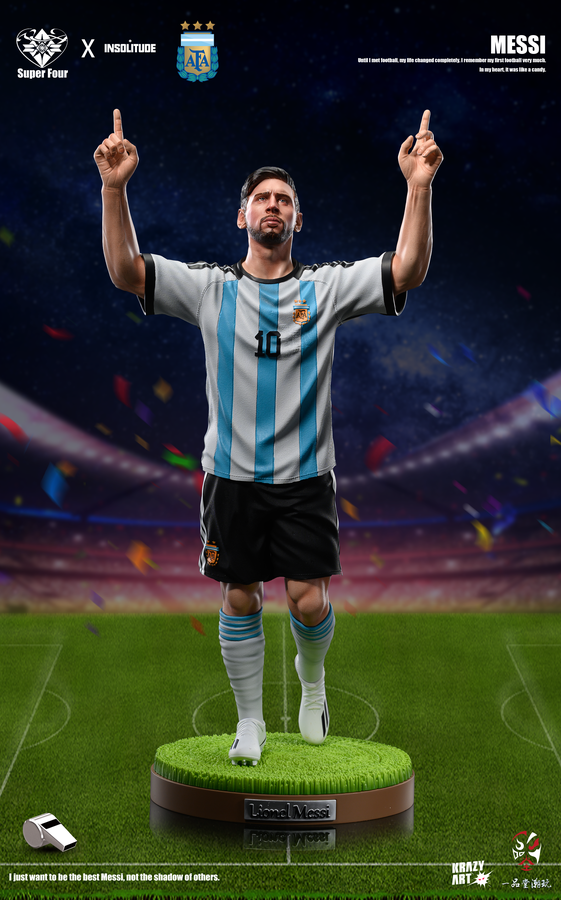
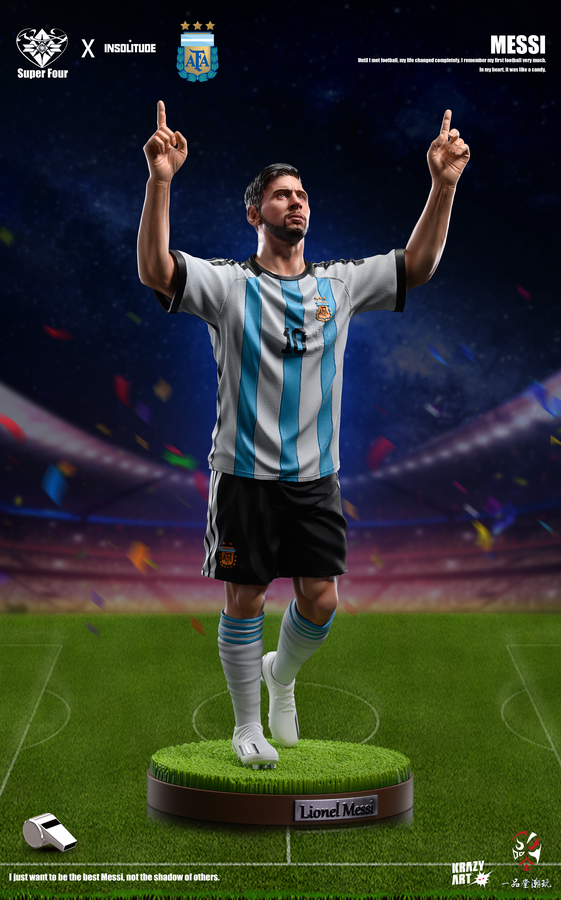
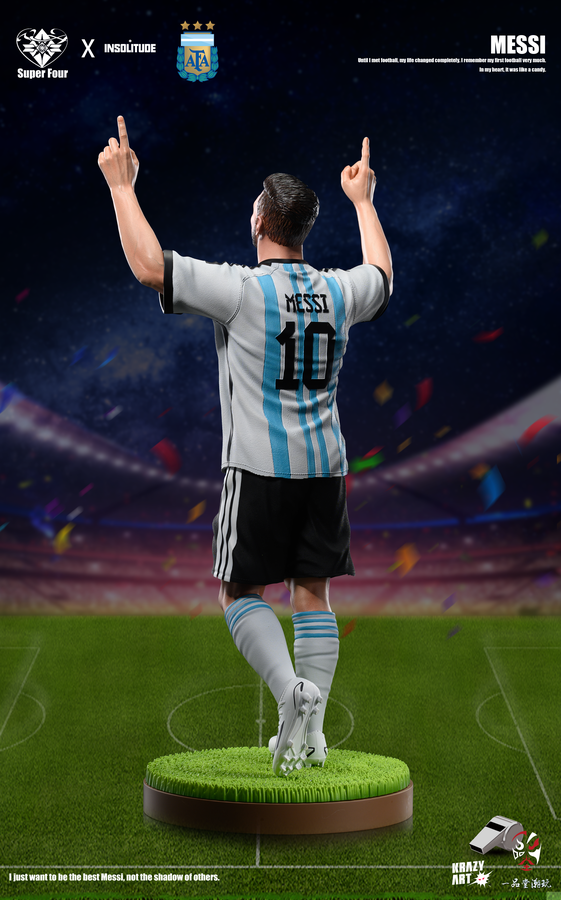
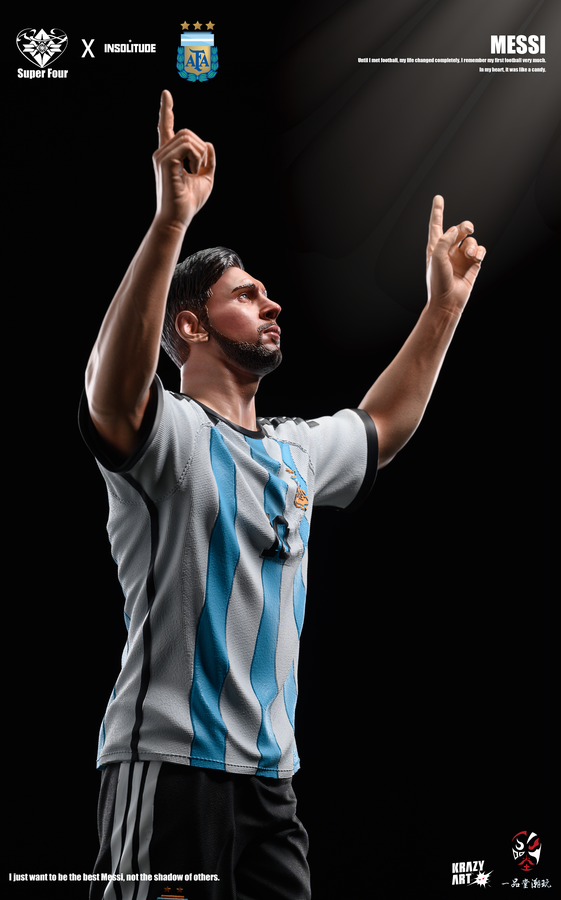
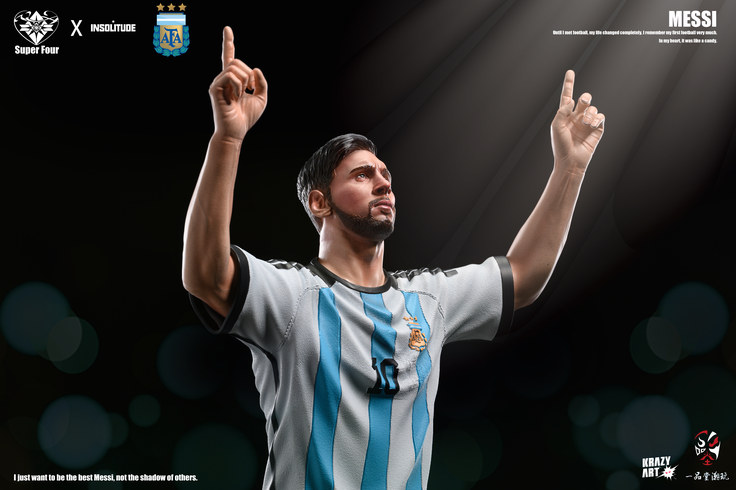
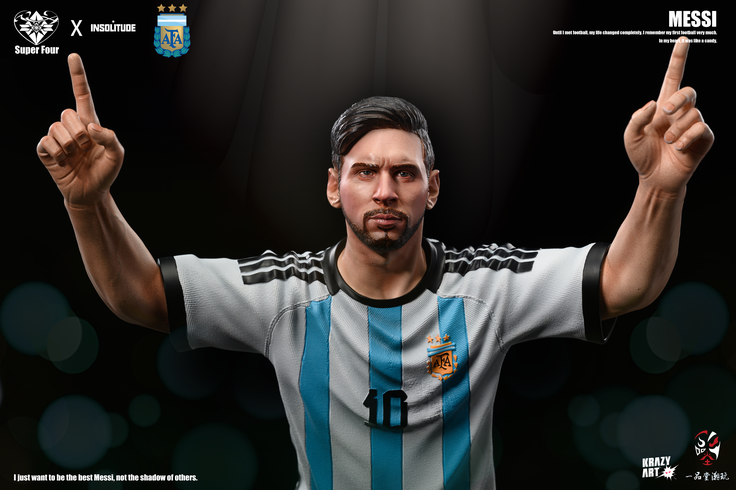
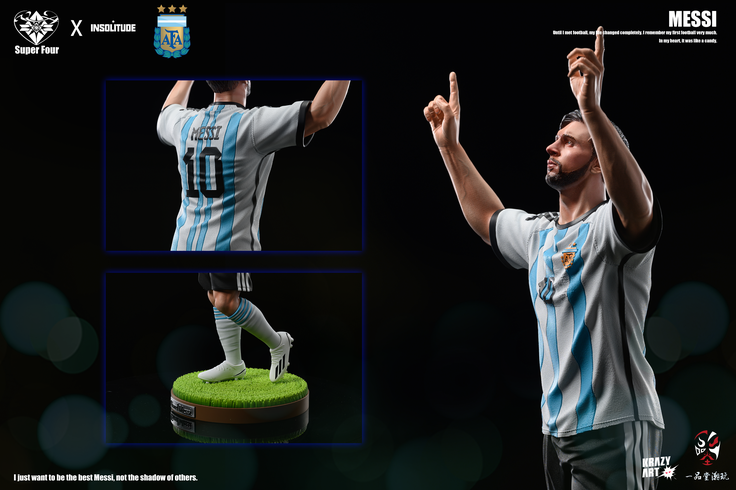
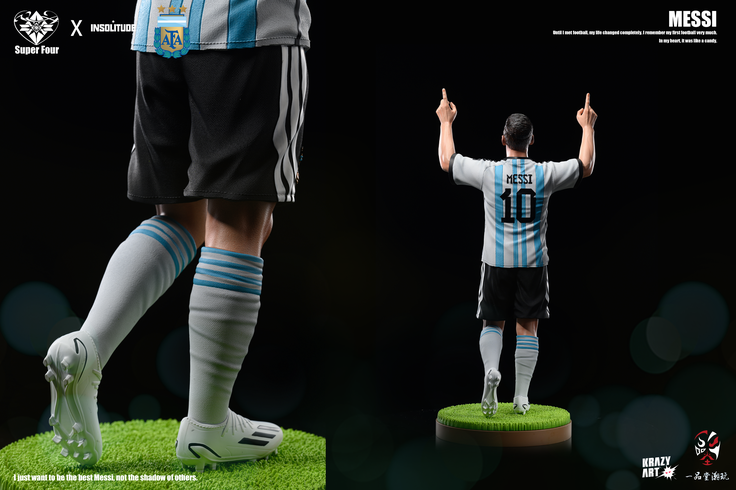
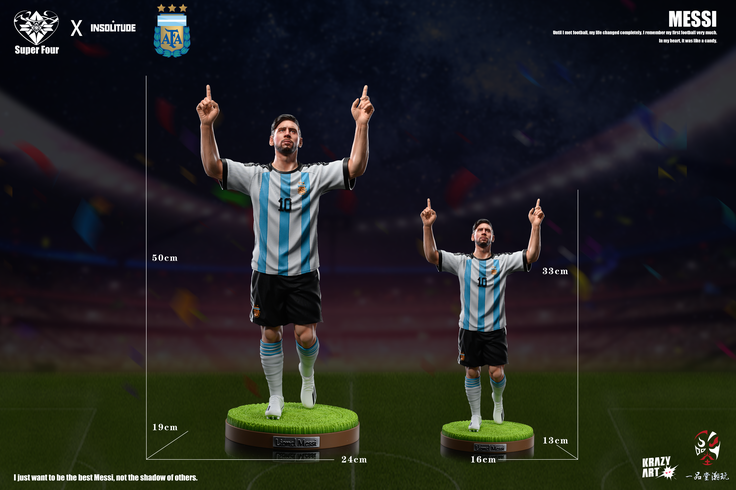
Leo Messi - 1:4 Scale
Pre Order
Non-Refundable Down Payment Required 90.000 KWD
Estimated to arrive Q2 2023
Estimated time of arrival may subject to change at any time without prior notice due to unforseen circumstances and based on Management's discretion
Please login to be able to add this product to cart
175.000 KWD
Quantity
Messi was born on 24 June 1987 in Rosario, Santa Fe, the third of four children of Jorge Messi, a steel factory manager, and his wife Celia Cuccittini, who worked in a magnet manufacturing workshop. On his father's side, he is of Italian and Spanish descent, the great-grandson of immigrants from the north-central Adriatic Marche region of Italy, and on his mother's side, he has primarily Italian ancestry.Growing up in a tight-knit, football-loving family, "Leo" developed a passion for the sport from an early age, playing constantly with his older brothers, Rodrigo and Matías, and his cousins, Maximiliano and Emanuel Biancucchi, both of whom became professional footballers. At the age of four he joined local club Grandoli, where he was coached by his father, though his earliest influence as a player came from his maternal grandmother, Celia, who accompanied him to training and matches.He was greatly affected by her death, shortly before his eleventh birthday; since then, as a devout Roman Catholic, he has celebrated his goals by looking up and pointing to the sky in tribute to his grandmother.
"When you saw him you would think: this kid can't play ball. He's a dwarf, he's too fragile, too small. But immediately you'd realise that he was born different, that he was a phenomenon and that he was going to be something impressive."
– Newell's Old Boys youth coach Adrián Coria shares his first impression of the 12-year-old Messi.
A lifelong supporter of Newell's Old Boys, Messi joined the Rosario club when he was six years old. During the six years he played for Newell's, he scored almost 500 goals as a member of "The Machine of '87", the near-unbeatable youth side named for the year of their birth, and regularly entertained crowds by performing ball tricks during half-time of the first team's home games. However, his future as a professional player was threatened when, aged 10, he was diagnosed with a growth hormone deficiency. As his father's health insurance covered only two years of growth hormone treatment, which cost at least $1,000 per month, Newell's agreed to contribute, but later reneged on their promise. He was scouted by Buenos Aires club River Plate, whose playmaker, Pablo Aimar, he idolised, but they declined to pay for his treatment. His goalscoring idol growing up was Ronaldo, with Messi calling him "the best forward I've ever seen".
Messi enrolled at Barcelona's youth academy, La Masia, aged 13.
As the Messi family had relatives in Catalonia, they sought to arrange a trial with Barcelona in September 2000. First team director Charly Rexach immediately wanted to sign him, but the board of directors hesitated; at the time it was highly unusual for European clubs to sign foreign players of such a young age. On 14 December, an ultimatum was issued for Barcelona to prove their commitment, and Rexach, with no other paper at hand, offered a contract on a paper napkin. In February 2001, the family relocated to Barcelona, where they moved into an apartment near the club's stadium, Camp Nou. During his first year in Spain, Messi rarely played with the Infantiles due to a transfer conflict with Newell's; as a foreigner, he could only be fielded in friendlies and the Catalan league. Without football, he struggled to integrate into the team; already reserved by nature, he was so quiet that his teammates initially believed he was mute. At home, he suffered from homesickness after his mother moved back to Rosario with his brothers and little sister, María Sol, while he stayed in Barcelona with his father.
After a year at Barcelona's youth academy, La Masia, Messi was finally enrolled in the Royal Spanish Football Federation (RFEF) in February 2002. Now playing in all competitions, he befriended his teammates, among whom were Cesc Fàbregas and Gerard Piqué. After completing his growth hormone treatment aged 14, Messi became an integral part of the "Baby Dream Team", Barcelona's greatest-ever youth side. During his first full season (2002–03), he was top scorer with 36 goals in 30 games for the Cadetes A, who won an unprecedented treble of the league and both the Spanish and Catalan cups. The Copa Catalunya final, a 4–1 victory over Espanyol, became known in club lore as the partido de la máscara, the final of the mask. A week after suffering a broken cheekbone during a league match, Messi was allowed to start the game on the condition that he wear a plastic protector; soon hindered by the mask, he took it off and scored two goals in 10 minutes before his substitution. At the close of the season, he received an offer to join Arsenal, his first from a foreign club, but while Fàbregas and Piqué soon left for England, he chose to remain in Barcelona.
| UPC | KAR003 |
| Product Type | Figures |
| Price | 175.000 KWD |
| BRAND | KRAZY ART |
| EDITION | LIMITED EDITION 388 PCS |
| SIZE | H 50cm X L 24cm X W 19cm |
| TYPE | 1/4 SCALE |
| SERIES | Lionel Messi |
Customer Reviews
This product does not have any reviews yet - be the first to write one.

